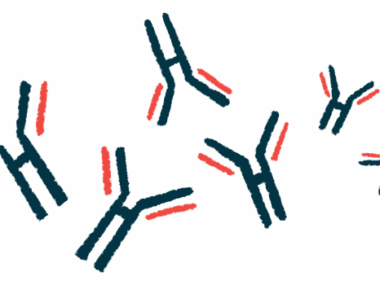Recruitment underway for Phase 2 trial of IPF inhalation therapy
RENEW study set to enroll about 120 people to test LTI-03's safety, efficacy
Written by |

A Phase 2 clinical trial has begun recruiting that’s assessing the safety and efficacy of LTI-03, Rein Therapeutics’ inhaled therapy for idiopathic pulmonary fibrosis (IPF).
RENEW (NCT06968845) is expected to enroll up to 120 people at about 50 sites in the U.S., U.K., Germany, Austria, and Poland. The study is now enrolling participants in El Paso, Texas.
“The initiation of the RENEW trial in patients with IPF marks a significant step forward for Rein as we prepare to ultimately identify and share the potential benefits of LTI-03 on patient lung function,” Brian Windsor, PhD, Rein president and CEO, said in a company press release.
IPF, the most common type of pulmonary fibrosis, is a chronic lung disease of unknown origin that’s marked by progressive scarring, or fibrosis, in the lungs. Its symptoms include fatigue, cough, and difficulty breathing.
What is LTI-03?
LTI-03 is formulated as a dry powder that patients inhale directly into the lungs. It contains part of the protein caveolin-1 (Cav1) that helps prevent fibrosis. People with IPF have low levels of Cav1 in their lungs and LTI-03 is intended to increase them. The therapy is also designed to preserve the health of alveolar epithelial cells, which line the air sacs in the lungs where gas exchanges take place. The combination of these two mechanisms is expected to ease fibrosis and associated IPF symptoms.
Results from a previous Phase 1b trial (NCT05954988) indicated LTI-03 lowered levels of several biomarkers associated with fibrosis. Its participants, who took twice-daily doses of the therapy for two weeks, also saw increases in a biomarker of alveolar epithelial cell health.
“Following productive FDA interactions and positive top-line results from the Phase 1b trial, we have designed our RENEW trial to test the promise of our dual mechanism approach to targeting alveolar epithelial cell survival and the inhibition of profibrotic signaling in this patient population,” Windsor said.
The Phase 2 trial is open to IPF patients, ages 40 and older, who’ve received an IPF diagnosis in the past five years. Patients who’ve been receiving certain standard of care therapies, including Ofev (nintedanib) and Esbriet (pirfenidone), may also be eligible. Participants will be randomly assigned to a 2.5 or 5 mg dose of LTI-03 or a placebo twice daily. Treatment will last for 24 weeks.
The primary goal is to assess LTI-03’s safety, which will be evaluated by keeping track of adverse events throughout the treatment period. Changes in lung function and in the extent of lung fibrosis will also be assessed as key secondary goals.




